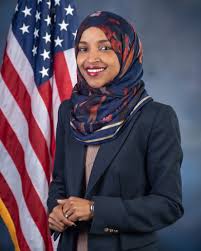The Political Journey of Ilhan Omar

Introduction
Ilhan Omar has emerged as a significant figure in American politics, known for her progressive stance and ability to inspire a diverse electorate. As one of the first Muslim women elected to Congress, she represents a shift in political dynamics and embodies the ongoing conversations around inclusivity and representation in government.
Background
Ilhan Omar was born in Somalia and fled the civil war with her family, spending four years in a refugee camp before resettling in the United States. She became involved in politics as a community organiser and made history in 2016 when she was elected to the Minnesota House of Representatives. In 2018, she further broke barriers by winning a seat in the U.S. House of Representatives, serving Minnesota’s 5th Congressional District.
Legislative Focus
Omar’s work in Congress has focused on several key issues including immigration reform, healthcare equity, and racial justice. She has gained attention for her passionate advocacy for the Green New Deal and a transformative approach to foreign policy, particularly regarding U.S. involvement in the Middle East. Omar’s stance often sparks debate, garnering both fervent support and opposing criticism.
Recent Developments
In the wake of the 2022 midterm elections, Omar faced challenges but emerged successfully re-elected, underscoring her continued relevance in the political landscape. Following the election, she has continued to advocate for legislation addressing climate change and social justice issues while also standing firm against any efforts to remove her from committees due to her outspoken views.
Conclusion
As Ilhan Omar continues her legislative work, her journey is indicative of a broader movement towards greater diversity within American politics. Her ability to connect with a wide range of constituents signals a changing political narrative, making her an essential figure to watch. Moving forward, Omar’s influence on both local and national stages will likely shape discussions around equity and representation, as well as government policy in the United States.
